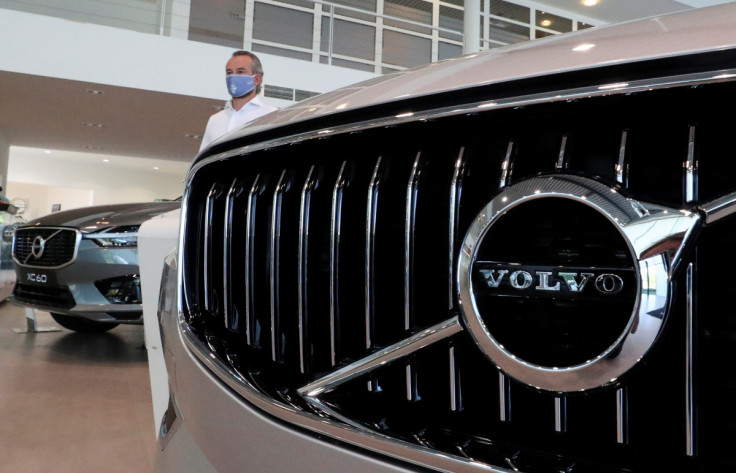Volvo braces for challenges in 2023 after quarterly profit falls
Volvo Cars said on Thursday 2023 was likely to be another challenging year, despite healthy demand for its vehicles, as the Swedish carmaker reported a fall in quarterly profit.

Volvo Cars said on Thursday 2023 was likely to be another challenging year, despite healthy demand for its vehicles, as the Swedish carmaker reported a fall in quarterly profit.
Volvo Cars, which is majority-owned by Chinese automotive company Geely Holding, said its fourth-quarter operating profit dropped to 3.4 billion crowns ($322.2 million)from 3.7 billion crowns a year earlier.
Profits were hit by high lithium prices, and having to buy semiconductors and logistics in the spot market, which can be more expensive than under long term contracts.
Volvo Cars and its peers have faced lingering chip shortages over the past year that have periodically hit manufacturing, with the Sweden-based company forced at times to halt production at some factories temporarily.
Other supply chain issues, the energy crisis and red-hot inflation have also made life tougher for the company.
"While 2023 looks to be another challenging year, we are hopeful that the COVID-related supply shortages from China are behind us and that we continue to see steady improvement in the supply of semiconductors," it said in a statement.
"Despite the global turbulence, uncertainty and our recent price increases, we continue to see healthy demand for our cars," Volvo Cars said, adding it expected a "solid" double-digit growth in retail sales during 2023.
However, Volvo Cars reaffirmed its mid-decade targets, which include selling cars at an annual run-rate of 1.2 million, with half of them electric. Some analysts had said ahead of the report that target was too ambitious.
"We remain doubtful whether the company will be able to achieve these targets before 2027 and think the company will have to significantly stretch its definition of 'mid-decade'," Bernstein said.
Volvo Cars shares fell over 3% at the market open, but were flat at around 0954 GMT.
CEO Jim Rowan defended the targets in an interview with Reuters, saying demand, new models and the easing of supply constraints would make it easier for the company to hit them.
He also said the company did not plan to reduce the price of its vehicles, despite other electric carmakers such as Tesla doing so.
Toyota Motor, which also reported results on Thursday, cut its annual manufacturing target in November and again on Thursday. This, like Volvo, is despite its vehicles sales rising.
December was the strongest month ever in cars produced for Volvo.
The company once again proposed not paying a dividend, but confirmed in a call to analysts that it would pay a bonus to its employees this year, and that it had no plans for job cuts
"If you look at our electrification journey and our growth ambitions ... we're going to be pretty comfortable in keeping our people busy," Rowan said.
Copyright Thomson Reuters. All rights reserved.





















